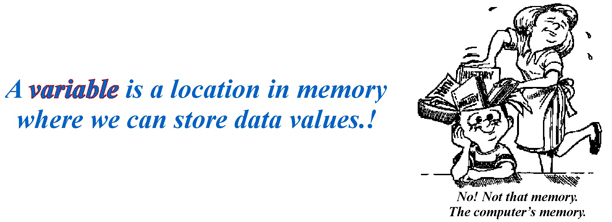


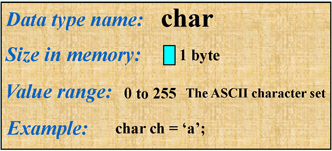 Variables of this type are used to hold single characters. That is, any of the 256 ASCII character set characters. |
|
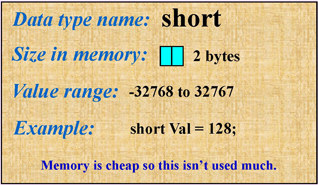 This is one of several integer data types. This one is rarely used now since memory is cheap and it has such a limited range of values. |
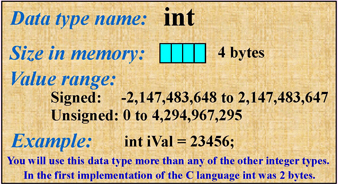 This is one of several integer data types. This one is also the one that is used most. In the original version of C the int and short were the same size. Now the int and long are the same size. |
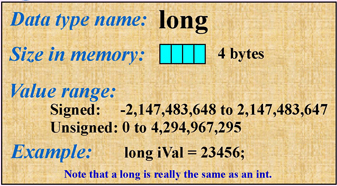 This is one of several integer data types. In the original version of C the long was used when you needed greater value range. Because it is the same size as an int now it is not used much. |
|
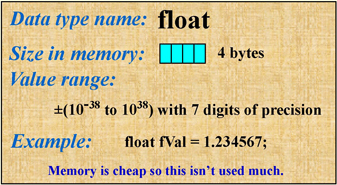 This is one of several real or decimal data types. The float, like the short is not used much now. |
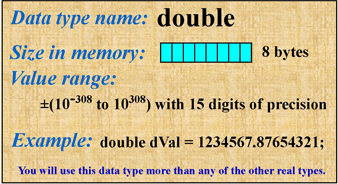 This is one of several real or decimal data types. It is the
This is one of several real or decimal data types. It is theone that is used most now since it gives greater precision and a wider range of values. |
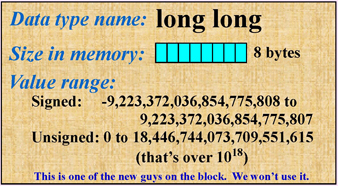 This is newest of the integer data types. Notice that its size is twice that of the int and long and it has a significantly wider value range. |
|
 This is newest of the real or decimal data types. Notice that its size varies from one system to another. On a PC running Windows it is the same size as a double. |
|
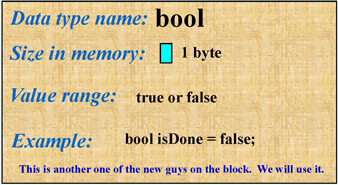 This data type is now used extensively whenever you need to set a boolean flag to indicate a true or false state for anything. |
|
#include |


